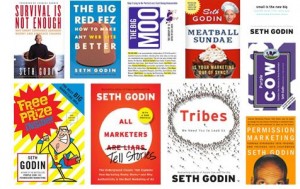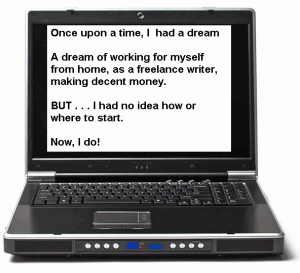 by Joe Wallace
by Joe Wallace
Kickstarter.com describes itself as, “…a funding platform for creative projects”. It’s a way to launch and crowd-fund book projects, graphic novels, DIY crafts, indie films and so much more, and several freelancers I know have started Kickstarter projects.
The rules of the road for Kickstarter are unique and well thought through: users must be approved to launch a Kickstarter campaign, the program is for creative projects only, and it’s an all-or-nothing proposition: if you don’t raise the entire amount of your Kickstarter pledge goal on deadline, the program does not launch and the money is not distributed.
That may sound a bit unforgiving, but in the words of Kickstarter.com, “On Kickstarter, a project must reach its funding goal before time runs out or no money changes hands. Why? It protects everyone involved. This way, no one is expected to develop a project with an insufficient budget, which sucks. Remember you set your own funding goal, so aim to raise the minimum amount you’ll need to create your vision. Projects can always raise more than their goal, and often do.”
I interviewed freelancer Patrick Ogle, founder and editor of the arts and culture site Mapanare about his experiences with Kickstarter. Ogle recently set up a project, Primitive Painted Impressions Of Everglades, and with just over 20 days left on the campaign at the time of this writing, he’s well over halfway to his $2000 goal. But he’s not ready to relax just yet–with Kickstarter’s all-or-nothing rules, the remaining chunk of the funding can’t be taken for granted.
Ogle says is looking for more people to make $1 donations–the smallest amount possible. That might seem counter-intuitive to some, but the idea of cultivating a pool of smaller investors makes very good sense from a PR standpoint, especially for an artist. Ogle hints that it might also be a way for him to learn about others doing their own Kickstarter projects…and respond in kind. The idea of Kickstarter as a social media platform, “with benefits”, is an intriguing one.
Freelance-Zone: What made you look into Kickstarter? Is this a way to supplement your freelance income, or did you have different motives in mind?
Patrick Ogle: It was a bit of an income thing–although my first Kickstarter was not really aimed at income, being somewhat modest in scope. I primarily do freelance writing and that slowed down so I was painting, which I hadn’t done for awhile. I started liking some of what I was doing and wanted to stay motivated. So I cooked up a Kickstarter. I also was looking at this with an eye to using it for writing projects down the road. This one is sort of an experiment and something I gleaned info on how to do from other projects.
Describe the nature of this project–what are you offering, what’s the response been to it, and what do you hope to accomplish with the project?
This project is about the Everglades and specifically a series of “primitive” impressions of the area I paint. I base them on photos or memory. Sometimes they are actually of nearby areas like the Big Cypress and Fakahatchee Strand–anyone who saw the film “Adaptation” will know the Fakahatchee. I wanted to paint a series of water colors and oils and needed money for materials. I also wanted the paintings to be FOR people. I wanted to send them out into the world.
If people are getting the paintings it will make me get it totally right. I will simply NOT send people things I do not feel are good.
You’ve had a surprise or two with the funding–describe that and how it felt to get the response you’ve had so far.
Strangers who want a BIG oil painting done specifically for them? That was a surprise and a welcome one. I also found people seemed less willing to pledge a dollar. I mean we can ALL afford a dollar! But people should realize that every cent helps. I plan, since I am poor, to find projects and donate a few bucks and spread the word about them. Another cool think about Kickstarter is that it sort of functions like social media. You can follow people and see what THEY pledge to…gives ideas. It is neat.
Based on what you’ve learned from the experience so far, any advice for other freelancers who are considering trying a kickstarter project for their e-book, art project, or other work?
Make sure you read all the Kickstarter materials. That helps. I would also think hard about your “rewards” and try to have a range of prices. I wrote down what EVERY material cost to produce everything and then figured in the time and then the shipping. Be sure to make a video and maybe post the video elsewhere with a link to the project.
I am doing this with an eye to writing pieces or graphic novels–which seem to do well. One thing I would point out- do not look at Neil Gaiman or someone like that and think YOU will do as well. Do NOT be a megalomaniac. Find out what things will cost you, figure out a mark up you can live with and be as creative as you can. MY rewards on this Kickstarter are NOT particularly creative! Do better!
Kickstarter seems to be a combination of social media for fundraising, PR-based fundraising, and, seemingly, a PR vehicle all in itself. What’s your take on this? And what do people have to do to make Kickstarter work for them?
I am just starting this–but I think before you START a project you should join, back projects, make connections, get your friends to join. THEN start a project. You will be the one doing the PR–it doesnt happen in its own. It is also a crowded area, especially with bands. Lots of bands!
Another good thing? I am a terrible self-promoter. And whether you are doing art or trying to get a freelance job writing about widgets you have to really sell yourself. Kickstarter can really help you develop those skills and realize where you are deficient. And I am deficient in a lot of ways!
Where can people go to learn more and/or support your project?
http://www.kickstarter.com/projects/150928624/primitive-painted-impressions-of-everglades



 Editors work with dozens of people on a daily basis. When they are ready to hand out an assignment, they often view writers websites to see work samples. They do not want to view your Facebook page, check your status, look at baby pictures, or read a stream of tweets about what your friends are doing.
Editors work with dozens of people on a daily basis. When they are ready to hand out an assignment, they often view writers websites to see work samples. They do not want to view your Facebook page, check your status, look at baby pictures, or read a stream of tweets about what your friends are doing.

 Whether sending a query letter, pitching an idea to an editor, or writing our bio for a newsletter, we often use the same old words: “Samantha is a full-time freelance writer.” Or, “Jason writes about music, sports and media.”
Whether sending a query letter, pitching an idea to an editor, or writing our bio for a newsletter, we often use the same old words: “Samantha is a full-time freelance writer.” Or, “Jason writes about music, sports and media.”